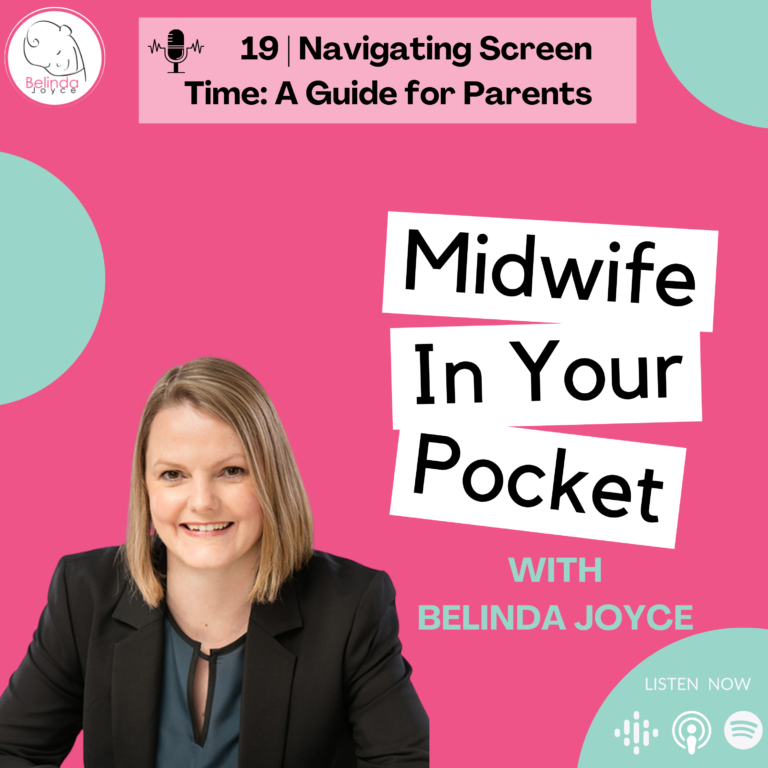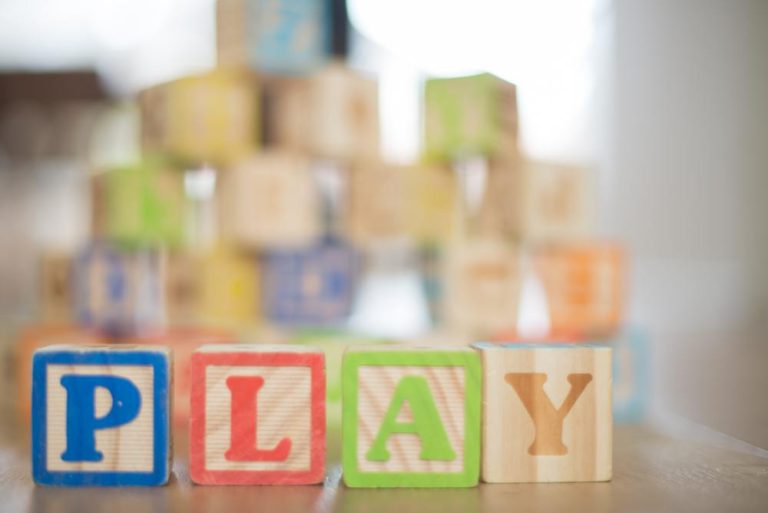How Much Screen Time for Babies and Toddlers
How Much Screen Time for Babies and Toddlers:
In this modern world we are surrounded by screens. Many parents are concerned about the possible effects of screen time on their babies and children and wonder how much is safe. We will look at the current recommendations as well as the reasons behind these. In addition we will discuss some strategies to reduce screen time for your baby.
What is Screen time:
Screen time includes watching TV, DVD’s, watching or using smart phones, tablets and computers.
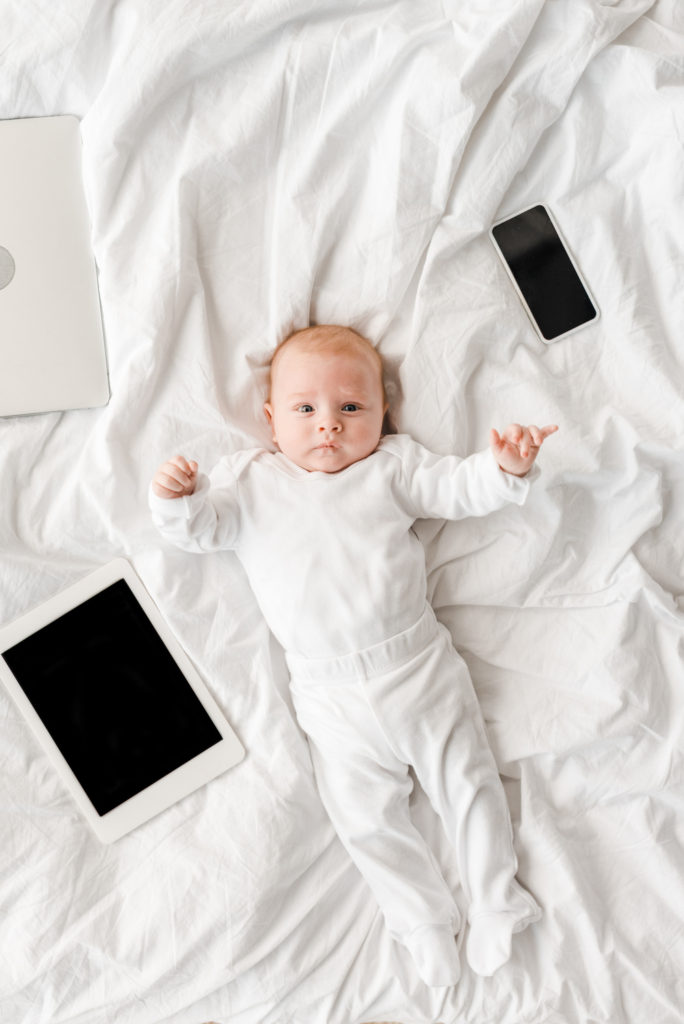
DISCOVER HOW TO SURVIVE & ENJOY YOUR BABY!
 The pack is full of checklists and printables to help you improve sleep challenges with our flowchart, decide what to take to hospital, what equipment is essential, what to put in your nappy bag and so much more
The pack is full of checklists and printables to help you improve sleep challenges with our flowchart, decide what to take to hospital, what equipment is essential, what to put in your nappy bag and so much more
What are the current recommendations:
Both National and International experts agree that screen time is not recommended for babies and toddlers under 2 years of age. This includes The World Health Organisation (WHO) and The American Academy of Pediatrics (AAP).
Video-chatting is the only exception to this as it has been shown to support social and language development and can increase bonds with friends and family.
For children 2 years and up to 5 years of age the recommendation is for up to 1 hour of screen time a day however less is better.
Why is it so important:
These early years are a period of rapid brain growth and learning.
Early habits set children up for a life-long relationship with screens, what they think is normal and acceptable.
Most of the recommendations are based on the fact that the more screen time babies and children are exposed to, there is less interaction between parent and child, less physical activity and reduced sleep quality and duration.
Sleep:
Screens tend to overstimulate babies and young children. This then takes them longer to fall asleep as well as less quality and quantity of sleep overall. This has been seen in the research in babies as young as 6 months of age with use of touch screen devices.
No screens in the hour before bedtime can help reduce these issues.
Speech:
Screen time has replaced time spent interacting between parents and baby or toddler and this can delay speech skills.
Learning to speak required both parent and baby/toddler to be engaged and participating.
Research has shown that parents use less variety of words when distracted by a screen, thus their baby hears and learns less vocabulary.
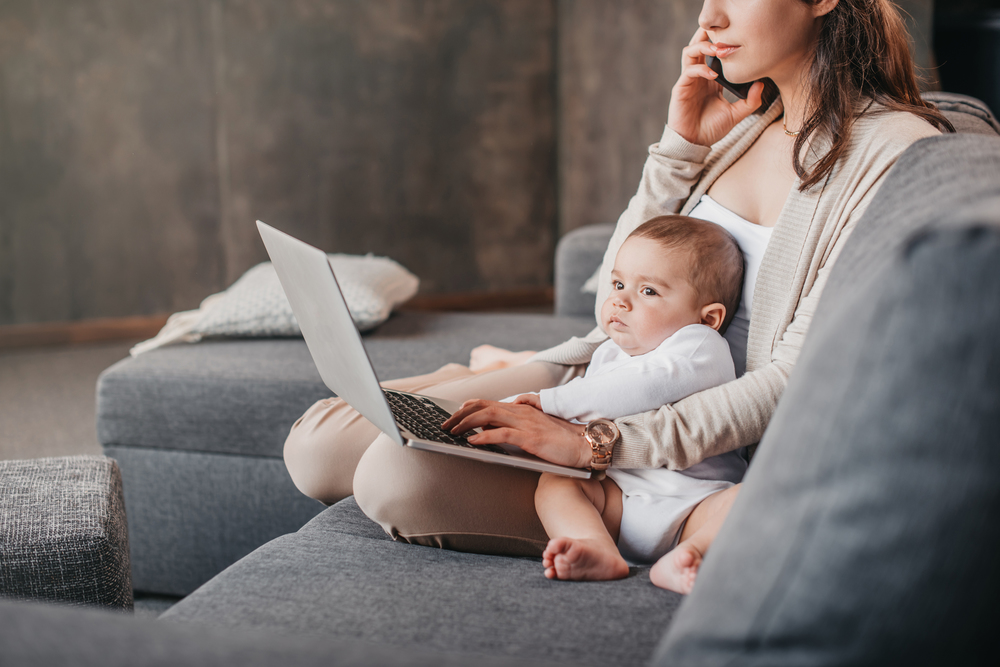
Physical activity:
Research shows that those children watching more than the recommended screen time are moving their bodies less and more likely to have an increased Body Mass Index (BMI). The screen time is replacing physical play time.
Even young babies are getting less than the recommended 30 mins of tummy time every day.
Healthy eating:
Those children having more screen time than recommended are eating more unhealthy foods and not noticing when they are full as they are distracted by the screen time.
Educational:
Some parents feel that screen time is good entertainment for their child and that some programs are educational.
Any educational benefits begin at a minimum of 2 years of age and would require a high quality program and an adult to be involved and interacting.
Remember to check the images that they may be seeing are not violent or upsetting as they are too young to make sense of them. When on some devices be aware of ‘pop-ups’ and similar that may be inappropriate.
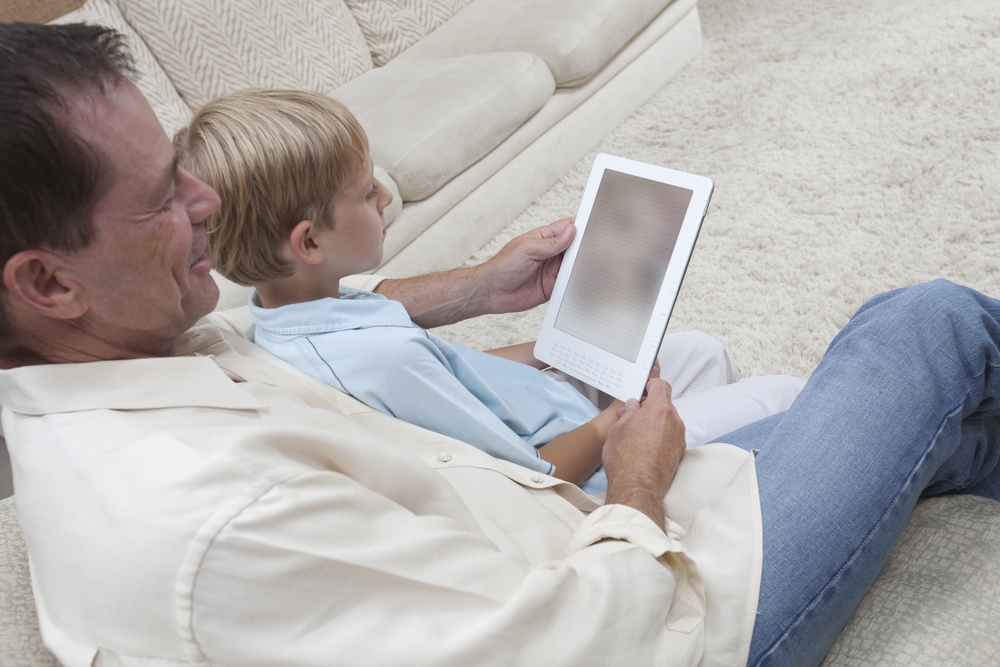
Parents:
Over 60% of parents report concerns with the effects of screen time however most of these same parents allow their children too much screen time.
Screens are often used to keep children occupied while the parent is getting other tasks done.
Parents report that they want their child to be able to use technology for future life needs.
We know that over 70% of babies in Australia are exposed to screen time every day.
Parents or carers have some control over the exposure to screen time for babies and toddlers.
However, in many family homes adults and older children are regularly using screens especially watching television. This creates a challenge to keep screen time to a minimum for babies and toddlers.
Strategies to reduce screen time:
- Place immobile babies on the floor away from direct view of any screens such as the TV
- Active family time
- Turn off screens when eating together
- Avoid checking your phone when playing with your baby or child
- Turn off the TV when a program you were watching ends
- Screen free bedroom policy
- Avoid unsupervised screen time
- Choose other activities such as reading books, puzzles, drawing, playing outside, cooking
- Reduce own screen time (model good habits)
- Take toys in bag rather than screens when heading out and about

The reality is that there are many screens around in this modern world. Even if you avoid these at home your baby will see them when you are out and about. It has become the norm to have screens in waiting rooms such as child health centres and GP clinics.
The most important thing to remember is not to beat yourself up if your baby or toddler has some screen time. However after reviewing the effects it is worth limiting screen time for your baby (and maybe for yourself too). By establishing good habits with screen usage from an early age you will benefit your child and family for a life time.

